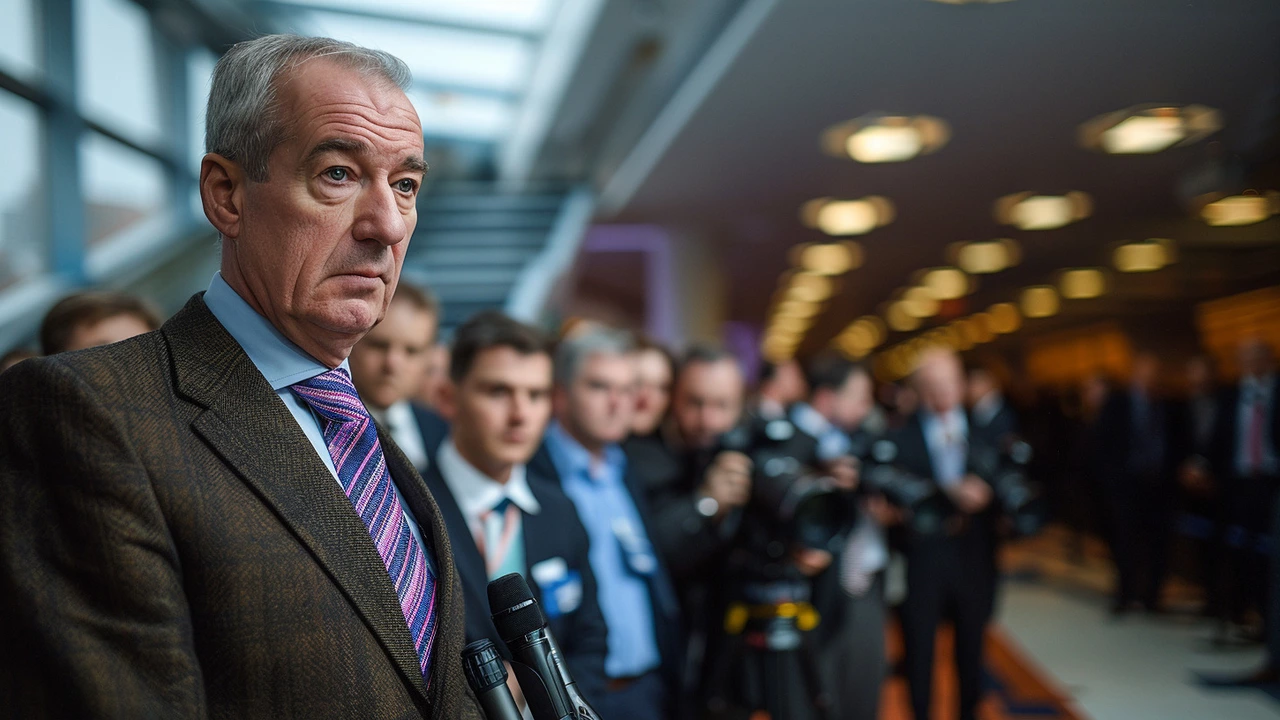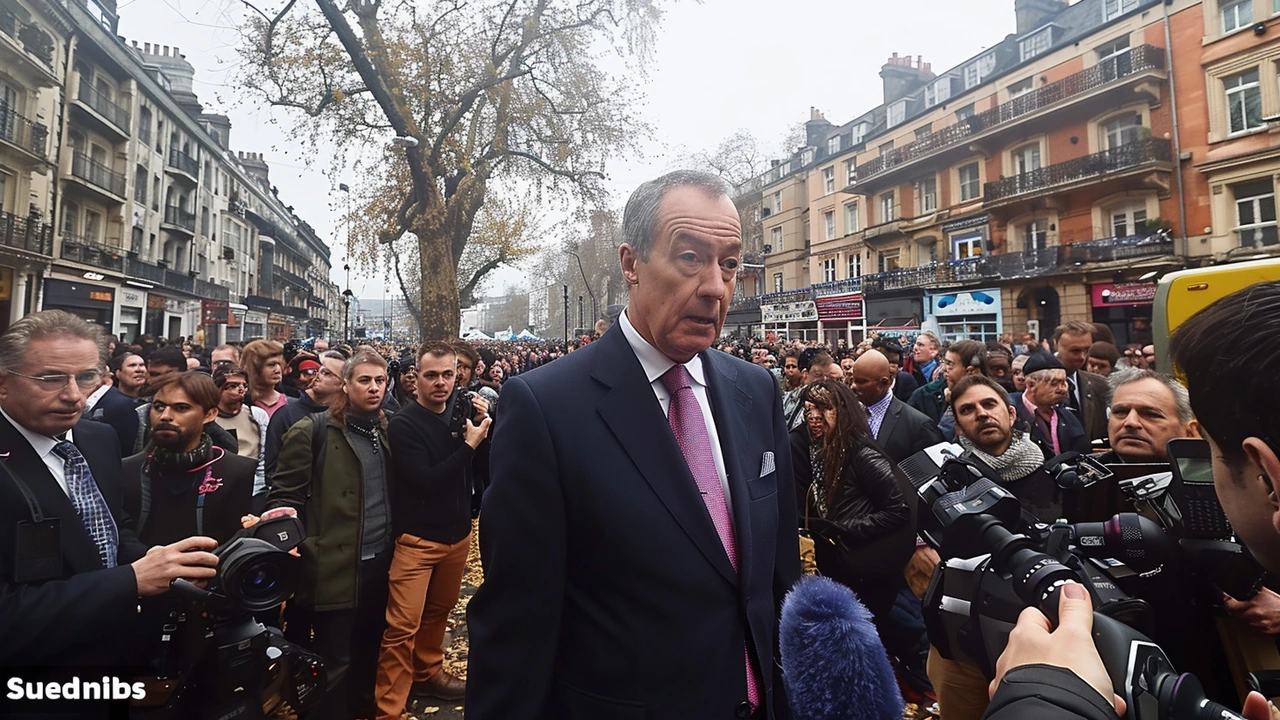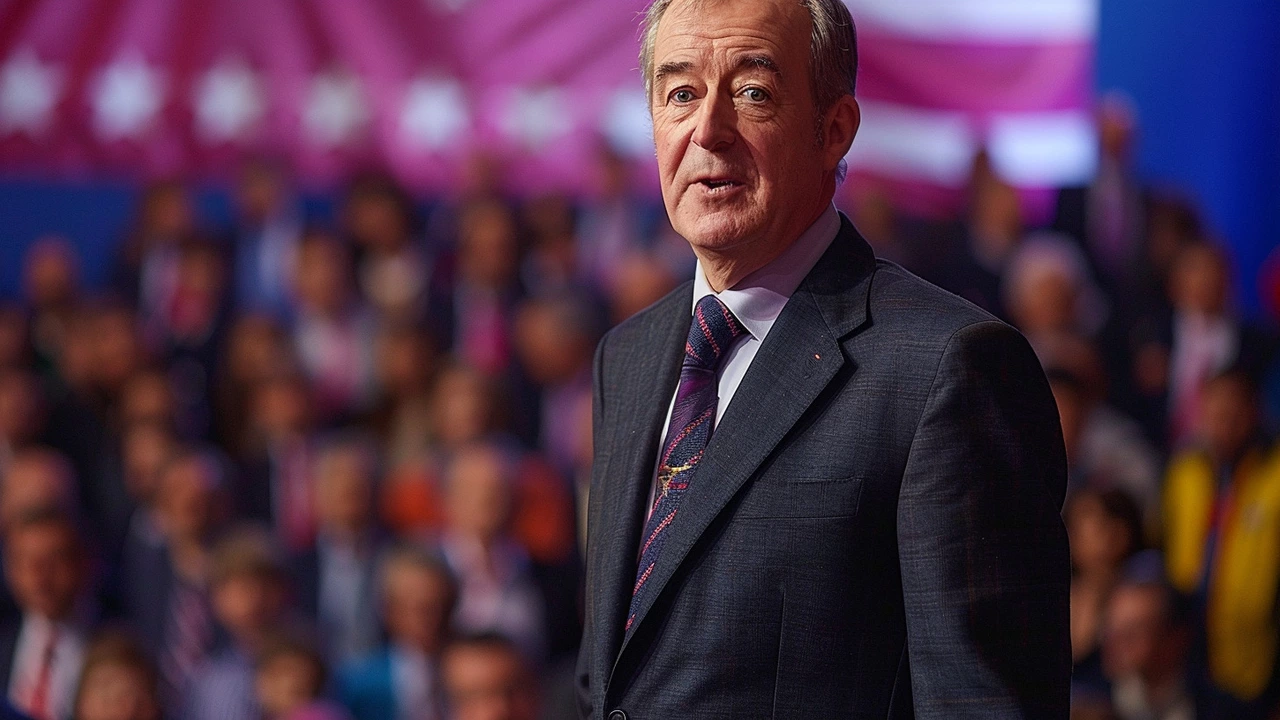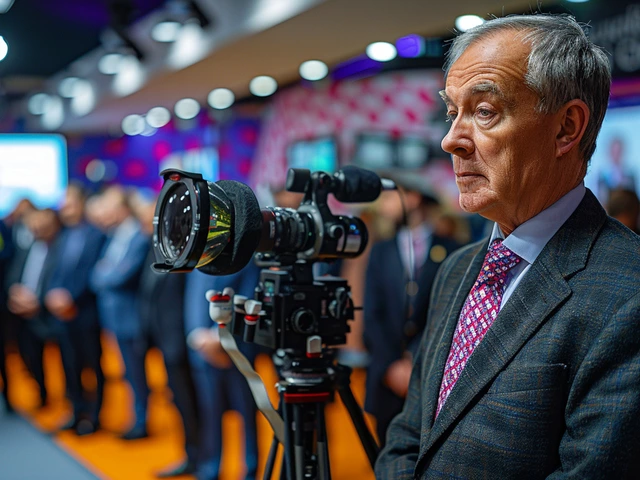Nigel Farage Addresses Women’s Exclusion in Inner Cities
Nigel Farage, the President of Reform UK and a prominent figure in British politics, has raised significant concerns regarding the increasing exclusion of women from inner cities and towns across the United Kingdom. Farage articulated his thoughts during an interview with Trevor Phillips on Sky News, depicting a grim picture of the nation's political landscape. He highlighted what he perceives as a drift towards ‘sectarian politics,’ whereby women are being systematically sidelined from urban centers. This assertion, he said, is evident in the exclusionary dynamics observed during recent political events.
The interview particularly zeroed in on a Labour campaign event led by Deputy Leader Angela Rayner. Farage observed the notable absence of women participating in the event, which he used to underscore his point about the growing marginalization. His remarks come at a time when gender inclusion in politics and public spaces continues to be a hotly debated issue within the UK. Farage warned that the sidelining of women not only feeds into divisive sectarian politics but also undermines the broader goals of equality and social cohesion.

Channel Crossings: A National Security Emergency
Farage also brought attention to what he describes as a ‘national security emergency’ posed by the escalating number of Channel crossings. These crossings have seen a surge, with many migrants attempting perilous journeys to reach the UK. According to Farage, the situation is spiraling out of control, necessitating immediate and decisive action to curb the tide.
Farage's proposals are stark and controversial. He has suggested deploying the Royal Marines to intercept and force migrant boats to return to France, rather than escorting them to the UK. This approach, he argues, would send a clear message and help deter future crossings. His comments reflect a growing impatience among certain sections of the British public who feel that the government’s current measures are inadequate.
Additionally, Farage defended his past controversial comments about British Muslims. He clarified that his criticisms are aimed not at the religion or its followers but at specific issues, such as cultural practices that he believes are incompatible with British values. Farage insists that his stance is fundamentally about protecting the interests of those who work, pay taxes, and aspire for a better future for their children.

Criticism of the Conservative Party
The interview also saw Farage taking a swipe at the Conservative Party, accusing it of failing the electorate on crucial issues like immigration and self-employment. Farage argues that many voters who once trusted the Tories to manage these matters now feel utterly let down. He cited the ongoing difficulties faced by self-employed individuals, exacerbated by what he calls the government’s lackluster response to their plight.
Farage’s critical stance towards the Conservatives is not new, but it gains new significance in the context of his broader political strategy. As the President of Reform UK, he is positioning his party as a viable alternative for disillusioned voters. His message is clear: reform is urgently needed, and the existing political establishment is ill-equipped to deliver it.

Media Response and Controversy
The aftermath of Farage's comments saw a blend of support, criticism, and controversy. A notable episode involved BBC News presenter Geeta Guru-murthy, who apologized for using inflammatory language while describing Farage’s remarks. Farage, always keen to seize the moment, questioned her impartiality on social media, adding another layer to the ongoing media debates.
Despite the contention surrounding his comments, Farage remains an undeniable force in British politics. His ability to provoke discussion and shape political narratives cannot be understated. As the election campaign heats up, figures like Farage will undoubtedly continue to be focal points of intense debate and scrutiny.
The issues he raises, particularly around sectarian politics, women’s exclusion, and immigration, are likely to resonate with many voters. Whether one agrees with his views or not, Farage’s capacity to highlight perceived injustices and offer radical solutions ensures that he remains a central figure in the UK’s political discourse.
